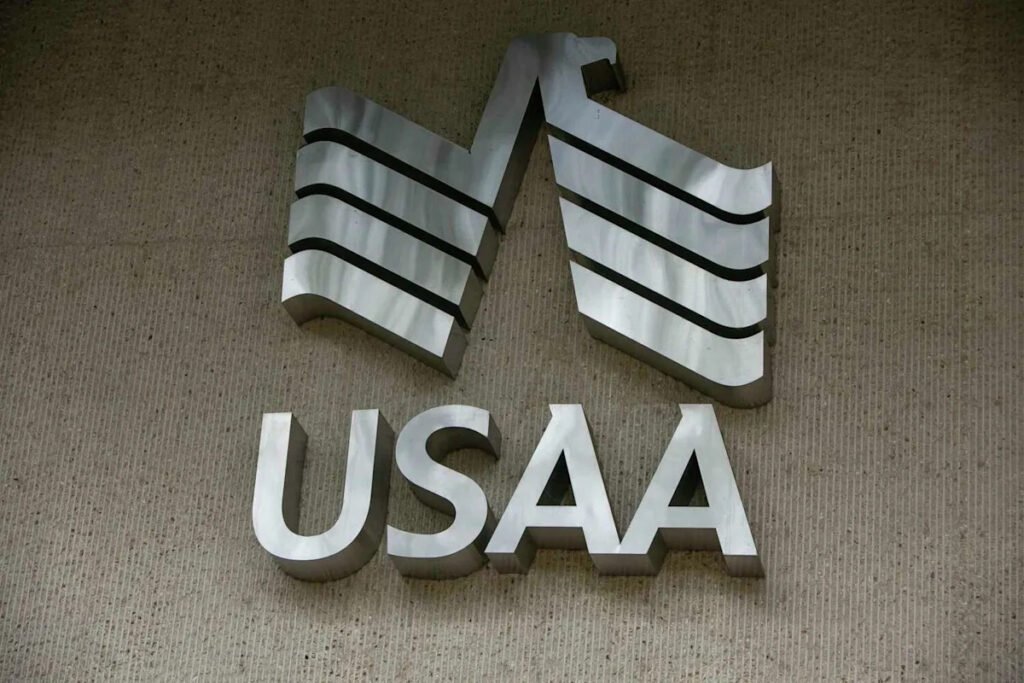This story has been updated. Please see editor’s note at the bottom of the story.
The U.S. Supreme Court has turned down USAA’s request to review a ruling in connection with two patents related to making remote check deposits.
The patents were part of a federal appeals court ruling that set aside a $218.5 million jury verdict won by San Antonio company against PNC Bank in a patent infringement case three years ago.
USAA had filed a “petition for a writ of certiorari” on Aug. 5, asking the nation’s high court to review a February ruling by the Patent Trial and Appeal Board — part of the U.S Patent and and Trademark Office — that determined the certain patent claims were “unpatentable.” On Monday, the Supreme Court denied USAA’s request without explanation.
USAA alleged that PNC Bank, based in Pittsburgh, had infringed on patents related to depositing checks using a mobile device.
READ MORE: USAA’s $218.5M jury verdict against PNC Bank overturned by appeals court
“For over a century, USAA has proudly served military members and their families, and our deep understanding of their unique banking needs drove us to invent mobile remote deposit capture (RDC),” USAA said in an emailed statement addressing the high court’s decision. “Although the Supreme Court declined to review the Federal Circuit ruling on these two patents, we remain confident in our extensive and growing portfolio of nearly 170 RDC patents not involved in the PNC litigation.
“The strength of that patent portfolio is shown by the many financial institutions that have agreed to or continue to negotiate a license to use our technology,” USAA added. “We will continue to fight for the technology that supports our members.”
In June, the U.S. Court of Appeals for the Federal Circuit, which hears patent appeals, set aside the huge jury verdict from 2022. Since then, USAA’s bid for a rehearing from the three-judge panel, as well as the entire court, were denied.
USAA previously indicated that it was weighing its options, including a possible appeal to the Supreme Court. Monday’s ruling, however, doesn’t bode well for USAA if it chooses
IUSAA sued PNC Bank in 2020 in federal court in Marshall – a popular East Texas venue for patent disputes.
A jury awarded USAA $218,450,000 following a four-day trial in 2022 after finding that PNC Bank had willfully infringed on USAA patents and failed to proved that the patent claims were invalid.
PNC Bank appealed the jury verdict to the Court of Appeals for the Federal Circuit, which handles patent disputes.
The appeals court sided with PNC Bank , ruling that USAA’s patent claims are not “patent eligible” because they relate to “the abstract idea of depositing a check using a mobile device.”
The court said USAA’s patent claims “recite only routine and well-known steps when depositing checks. like authenticating the customer, capturing check images, reading the check amount and account information, and checking for errors.”
The patent claims “are silent as to specific software or technical advances” and “there is no technological solution within the claims that pull them out of the realm of an abstract idea,” the court added.
RELATED: USAA claimed Truist Bank took its remote-deposit technology. They’ve reached a settlement.
USAA, in its petition to the Supreme Court, called the appeals court decision “particularly egregious,” in part “because it invalidates USAA’s intellectual property rights in groundbreaking technology that USAA invested to allowed deployed U.S. servicemembers to make bank deposits from anywhere they could carry a mobile phone.”
In 2017, USAA began contacting banks and credit unions across the country offering a “licensing program” to pay for its patented technology surrounding remote deposit capture capabilities that it said developed about 18 years ago. The company launched its Deposit@Mobile product in 2009.
It has entered into licensing agreements with such banks as First Citizens Bank & Trust Co., Esquire Bank and Truist Bank. But USAA also sued banks that declined to enter into deals.
A PNC Bank spokesman declined to comment Monday. After the appeals court ruling, PNC said it appreciated “that the court recognized that USAA’s patents should never have been issued.”
This article originally published at Supreme Court declines to review ruling in case on USAA technology patents.

